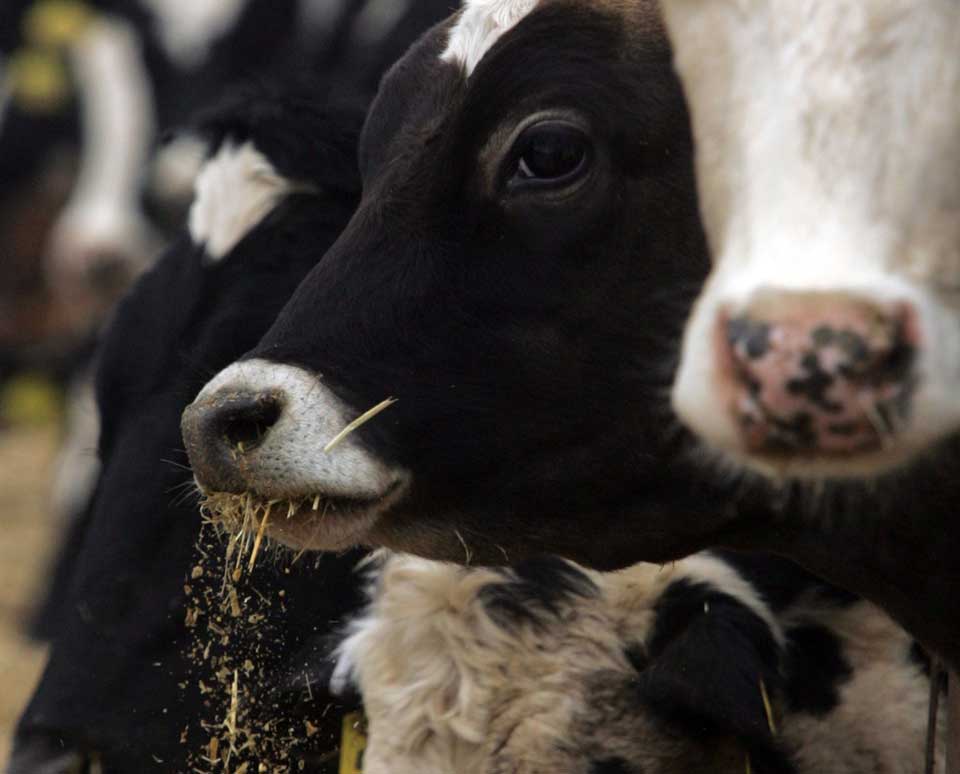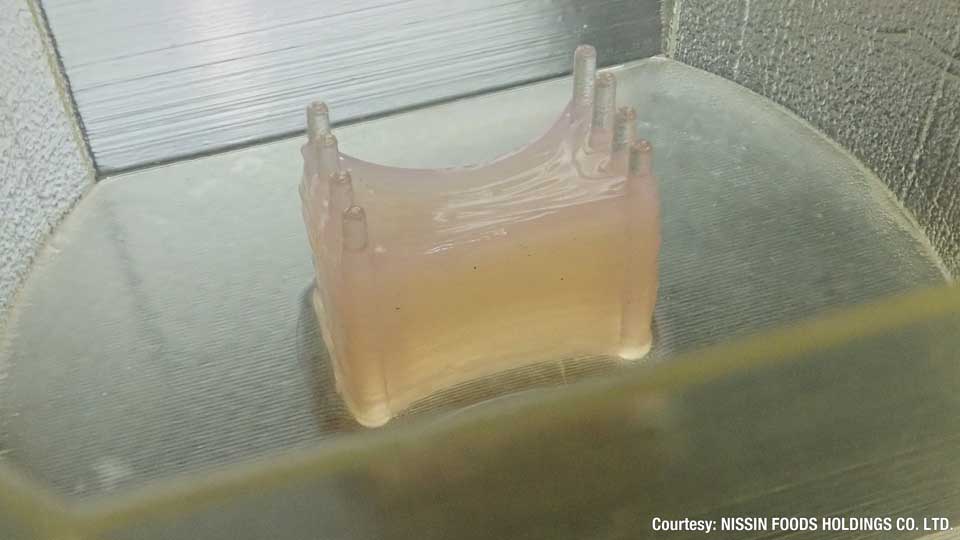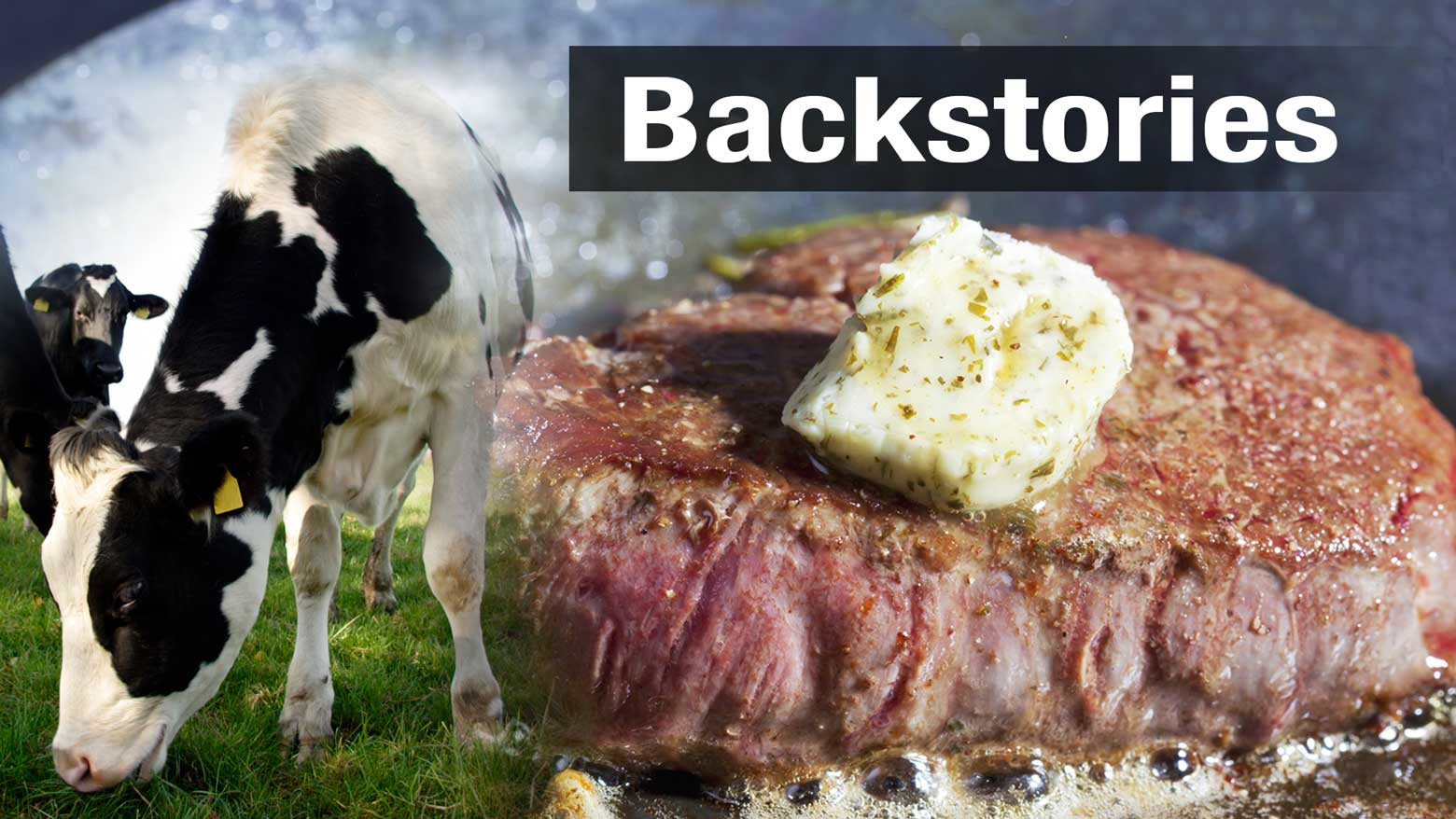Raising cattle that burp less

A cow burps an average of 250 to 500 liters of methane per day. That gas excels at holding heat.
The International Panel on Climate Change (IPCC) says methane is 28 times more potent than carbon dioxide. The World Food Organization reports that livestock supply chains account for 14.5 percent of human-generated greenhouse gas emissions. Beef and dairy production are responsible for most of that.
Researchers in many countries are looking for solutions to lower the amount of methane released into the atmosphere by livestock. Put simply, they want to cut out the burping.
To that end, Japan's National Agriculture and Food Research Organization has been working with 13 other groups across the country, and they've found that certain types of cows burp more, and others burp less.

The agriculture ministry is now encouraging scientists to develop ways to selectively breed low-emission cattle. Researchers are analyzing the microbes in cows' stomachs and measuring how much methane they produce. So far, the government has spent 2.8 million dollars on the research, over the last three years. Scientists say the work will take another two years. If they succeed, cattle farmers in Japan could cut their greenhouse gas emissions by 20 percent compared to 2013 levels.
Fresh meat "created" in a lab
Other researchers say the world may no longer have to worry about cows burping, because now they can produce meat without farming livestock.
This year, cup noodle maker, Nissin Foods Holdings, announced that they had created laboratory grown diced steak with an authentic texture.
They say they're working toward a sustainable method of meat production.

Nissin says their "cultured meat" is made from beef muscle cells. They say that by 2025 they should be able to culture beef from larger muscle tissue and produce steak that has the same food-feel as farmed beef.
What's stopping us from choosing meatless meat?
Japanese meat producers say they're keen to react to rising consumer demand for a variety of healthier meats with the taste of real animal protein.
Itoham Foods took the plunge this fall by unveiling 15 new products. They're going meatless, with hamburgers, pork cutlets, and chicken nugget-ish foods, all made of soy.

The company says they decided to switch to non-meat meat products, to not only appeal to vegetarians but a growing population of "flexitarians", who only eat meat sometimes.
Other leading food companies in Japan are beating the same path toward the production of plant-based meat substitutes.
The future of food and protein sourcing
The IPCC report says an overhaul of global food production is urgent to control greenhouse gas emissions and feed a world population set to reach 9.7 billion by 2050. Experts say consumer awareness and new technologies are needed to change the status quo.
Japan has received the satirical "Fossil of the Day" award twice during the UN COP 25 climate conference for its continuing reliance on fossil fuels. Japanese businesses, and the food industry in particular, are becoming aware that they can't continue to be in the running for yet another disgraceful badge.
More companies are now responding to spreading international demand for lower emissions through sustainable production.

